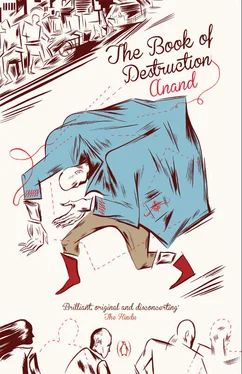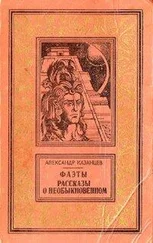The dilemma solved itself. A gatekeeper appeared from nowhere and bowed and made a welcoming gesture. I stepped in.
The narrow pathway led me to a fairly large lawn where a number of people had gathered and seemed to be engaged in pleasant conversation. Some were seated around tables playing chess or cards. Some were getting drinks from the bar. Couples held each other intimately, occasionally indulging in long embraces and kisses. Several fires had been lit around the garden for the comfort of the guests. To my amazement, none among them wore the tailor’s clothes that I had been pursuing.
Noticing me standing apart, someone approached and invited me for a game or a drink. I excused myself politely. I could not tell him what I was looking for. It was certainly not easy to explain my endeavour. Nor was I in a mood for conversation. I had only anxiety and confusion to share. I had not spoken to anyone since I had left the tailor’s shop. This ‘our place’, whoever it belonged to, was not mine.
Providentially, a man appeared by my side who seemed to understand my predicament. ‘Come with me, I will take you where you want to go,’ he said cryptically. He led me to one side of the lawn and I followed him obediently, no longer questioning how he knew where I wanted to go. I found that there was yet another gate hidden behind the shrubs. The new gate too had a board: OUR OWN PLACE. As on the previous one, this too had a few lines underneath in what appeared to be the same unknown language.
As we went through, it became clear that the man was right. The tailor’s flock was all there. And they were the only ones present. I was wary this time and did not go closer. I positioned myself close to the gate. From there I could finally see their faces. Contrary to my fears, they did have bodies and faces inside their clothes; individual faces, each different from the other. Nevertheless, I knew that they were different from all other people, those outside these gates, a knowledge perhaps only I had. I was not proud of that knowledge; it disturbed me.
Contrary to the theories of exclusiveness, entry to this second group appeared more relaxed than the first one. There was no doorman. It was strange, regulation becoming easier as the exclusiveness increased. But, somehow, the air of freedom and congeniality weighed heavily on me. As if this apparent casualness was a precursor to a greater danger. I unconsciously gripped the bars of the gate for comfort as I stood in my hidden niche.
‘Our own place’ was, as might be expected, a smaller place than ‘our place’. There was a high stone wall around it and a roof covered the whole area with the exception of a circle in the centre that was left uncovered.
There were not many lamps in ‘our own place’. The main sources of light were the small bonfires scattered over the whole area. The shadows only added to the eeriness. The fires also did nothing to check the cold that seemed to be rising rapidly.
Dispelling my initial assumptions, the people I had thought of as loners were talking to each other. They were shaking hands, smiling, embracing. These people who had had different homes, different pasts and histories not so long ago, seemed to have shaken off those lives at the command of a coat or a kurta to become entirely new beings. But upon closer observation, I found that their friendliness and familiarity were very superficial, mechanical. Their laughter rang hollow and insincere. Their compliments were ritualistic.
There was ritualism in whatever they did. They filled their glasses but made no attempt to drink from them; instead, they moved to the fireplace only to pour the drink slowly into the fire like an offering. The fire at the open central area was bigger in size; I soon realized it was in fact a barbecue pit. There was an iron bar above the fire with hooks for hanging the meat. Hungry flames shot up intermittently from the fire only to retreat, finding no flesh to feed on.
There were no waiters or servants here. Everyone helped themselves to the drinks. There was no evidence of any food.
There was a sudden commotion, a flurry of movement and everyone gathered around the central fire. As the noise settled they all raised their right hand in the air and placed the left on the chest and uttered a kind of litany several times in unison. At the end of it one person came forward and addressed all the others. ‘It is now time to decide,’ he said, ‘who will host today’s party. Those who wish to volunteer, please take off your clothes and step forward.’
Instead of the one or two I expected, each and every one in the assembly began to remove their clothes in response. It seemed like yet another flock-behaviour, perhaps the only way they knew. They tore off their clothes as if no one wanted to be left behind in the race. In a matter of moments, everyone in the assembly was stark naked except the master of ceremonies. The tailor’s call had been to clothe the naked, but the master of ceremonies seemed intent on undoing his work. Unashamed, or perhaps unconscious of their nakedness, all of them stood, men and women.
Having by now got used to surprises, I just stood there. My eyes inadvertently explored them as if to satisfy myself that their bodies, though created by the tailor’s clothes, were, in fact, human. Hands, legs, breasts, buttocks and genitals; thin, fat, dark, fair, brown … yes, they looked human. Yet I knew that they were not their original selves. It was perhaps too much to expect them to revert just because they had shed their garb. The present denudation, however, gave them an orphaned look as if they had no identity other than what the clothes had given them. In their hurry to take off the clothes, some had dropped their drinks, but they made no attempt to retrieve them now.
The master of ceremonies did not seem very pleased with their behaviour. He moved through the flock, critically scrutinizing each person with an air of authority like a military officer inspecting a parade. He was the only one still fully dressed in the congregation and seemed to wield power. After walking through the throng a couple of times and inspecting the flock head to foot, he finally picked six persons, three men and three women, and asked them to fall out.
As the rejected ones went back into their clothes in unquestioning deference to his decision, the selected ones celebrated. They embraced each other, kissed and danced. Soon, as if to further test the limits of my amazement, the six chosen naked bodies, with complete disregard to the large crowd surrounding them, clung to each other and plunged into the throes of a sexual orgy. That was the only time their actions appeared to be completely spontaneous, not programmed or orchestrated, and the rest of the crowd waited impatiently until they collapsed, exhausted and drained.
The master of ceremonies once again took control and cast the dice for the six. He imperiously pointed to the one who was selected. The remaining five got up, dressed themselves and then hoisted the chosen one over their heads. The crowd cheered, and the chosen one waved to them like a champion in a rally. Imagine my surprise when I got a glimpse of his face; it was none other than the tailor himself!
What a comeback! I was under the impression that I had been moving away from this man with every step since I left him at the doorway of his shop. Distancing myself from him and following his dresses. But he had been the one leading them — and, as it turned out, leading me too — to this bizarre drama. Now, among the whole assembly wearing his dresses, he alone stood naked. In the end the artist is exposed by his creations and the prophet is unclothed by his followers. My unease grew with every minute. A voice inside my head whispered that I hadn’t seen the end yet and the denouement of the drama was yet to take place.
Читать дальше











